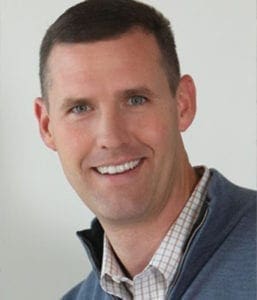Marietta
Workshop gives parents guidance on blocking internet porn
By ERIKA ANDERSON REDDING, Special to the Bulletin | Published April 20, 2017
MARIETTA—In this technology-driven age, keeping children safe online should be a top priority for families. At a parish workshop in Marietta, parents heard that with diligence, open communication and accountability, they can raise their kids to use and appreciate technology in a positive and moral way.

Ryan Foley
Ryan Foley, vice president of business development for Covenant Eyes, a company offering filtering and accountability software, and a parishioner of St. Brendan the Navigator Church, Cumming, spoke to parents about internet safety at Transfiguration Church, Marietta, March 30. The parish invited parents throughout the archdiocese to attend.
Though he works to keep families safe online, Foley’s primary role is as a father to his children. That has only increased his passion for helping other parents navigate the pitfalls of the internet.
“I know what it’s like as a dad and to go through the adolescent and pre-pubescent years with technology,” he said.
Foley’s work is focused mostly on protecting children from pornography. Some of the statistics he cited included that more than 47 percent of families in the United States report that pornography is a problem in their homes. He also said that the average age of first exposure to pornography is 11, and children and teens 12 to 17 are one of the largest groups viewing internet porn.
“The reality is that our kids are seeing it earlier and earlier,” Foley said, adding that factors such as accessibility, anonymity and affordability are helping to lower that age of exposure. “People are shocked by how many laptops, tablets and smartphones they have. Pornographers want kids exposed so they start that compulsive behavior early. Fifth-graders are asking for phones, and when mom and dad think they’re too young, they give them a tablet, which is a device that enables them to access pornography.”
Pornography and a technology-based world are affecting the church, Foley said.
“Kids are leaving the church in droves after confirmation,” he said. “It’s extremely difficult to evangelize to a heart where they have distractions such as gaming and pornography. As parents, we have to get involved and step up.”
Because the world has changed in so many ways, many parents have difficulty speaking to their children about sex.
“It’s been a challenge for parents to essentially evangelize to kids who are experiencing a distorted world around sexuality,” he said, adding that parents need to embrace teaching their kids about sexual morality.
When children are caught looking at pornographic images, often parents want to punish them but should use the opportunity as a teaching moment instead, Foley said.
“A parent will say, ‘I hope we never have to have this conversation again.’ And they never will. They’ll never bring it up, and the kid will never bring it up. They’ll just go more into hiding and go into their young adult period never talking to anyone,” he said. “It’s really not the fault of the 10-year-old who gets exposed. What we should do is say, ‘What you saw is wrong, and here are all the reasons why.’”
Statistics show that 88 percent of teens have smartphones. Parents sometimes use them as “digital pacifiers,” Foley said, allowing their kids unfettered access as long as they are quiet.
“They have unfiltered access to the internet and unlimited access to apps. Parents don’t set the restrictions passcode,” he said. “You can turn off apps and set limitations, and you can actually make this device what you want it to be.”
The statistics also show that if kids view pornography, 61 percent say it’s usually in their bedroom.
“That’s one of the biggest things we can do. Don’t let kids into their rooms with their smartphones,” he said. “That’s when they get bored. And when they’re bored they go online, and that’s when they’re exposed. If we actually got these smartphones out of kids’ bedrooms, we could solve a lot of future problems.”
The Catholic Church has also tried to combat this problem. In 2015, the U.S. Conference of Catholic Bishops issued “Create in Me a Clean Heart: A Pastoral Response to Pornography.”
“That opened the door for a lot of the conversations we are having now,” Foley said.
Foley gave practical examples for parents to help limit their teens’ exposure to immoral images. Parents should learn how to set restrictions, such as passcodes for apps, search engines and YouTube. Websites such as ProtectYoungEyes.com will show parents the danger lurking in various apps that are popular with kids. He encouraged parents to talk to their children about their bodies and how they were designed by God to be used. And as young people grow older, Foley said, it’s important to give them more responsibility.
“At some point, we are raising adults. It’s good to taper off those filters and use accountability,” he said. “Accountability makes you think more about what you’re doing online and how it affects others.”
Melinda Setchell teaches Spanish and technology at St. Joseph School in Marietta. She also has three children who are in middle or high school. She said she had no idea it was so easy for kids to view pornography.
“I’m just flabbergasted by the access they have,” she said. “I need to make sure to stay up to date so I can be informed. The internet can be a wonderful thing—it can be used for education and evangelization. But we have to give kids the tools to realize what’s really out there.”
“When I read about this event, it was instantly relevant. I think we have an obligation as parents and as educators to help our kids transition into adulthood and make good decisions themselves,” she said.